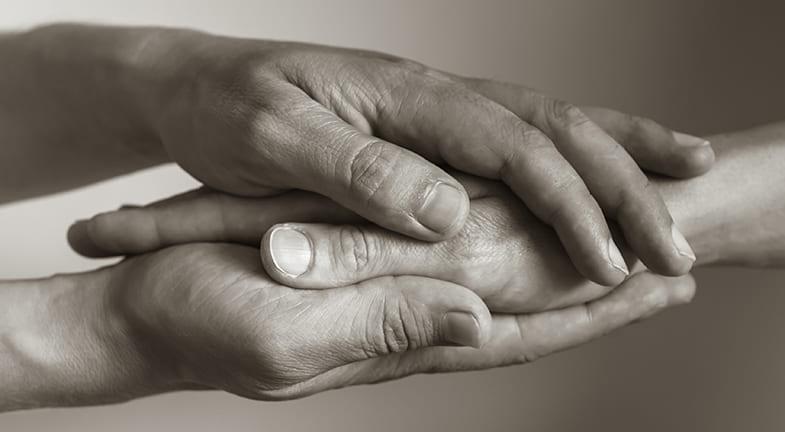
Editor's note—On Tuesday, Jan. 18, members of United Academics and the Center for the Study of Women in Society met with University of Oregon leader ship to discuss the needs of caregivers during the current COVID-19 surge as part of our ongoing advocacy in the Caregiver Campaign. The following update was sent today to UA membership:
Dear Colleagues,Yesterday, members of UA’s executive council met with Executive Vice Provost Janet Woodruff-Borden and Vice President Mark Schmelz in order to discuss the following list of solutions garnered by our membership to address our working conditions during the ongoing pandemic.During our meeting Avinnash, Bill, Lisa, Lynn, Mike, and Nathan expressed what we’ve been hearing from you all: why we need changes to both our current working conditions and how we can make those changes collaboratively and collectively. As you’ll see from the list below, we are thinking about short-term ways to manage the current moment’s challenges as well as preparing for long-term impacts on our work.We are now waiting for a written response to our proposed solutions and we will update you all as soon as we can. Thank you for messaging us, talking to us, showing up at the GMM, and offering your expertise and wisdom to help us all navigate what’s in front of us.In Solidarity,The Executive Council of United Academics at the University of Oregon, AAUP-AFT Local 3209 AFL-CIOFor all faculty:
- Establish a joint UA and management group responsible for Covid-related decision-making affecting our bargaining unit members. We hope you will do the same for other represented and unrepresented workers, too, in order to:
- address decisions impacting the wider campus community, such as making available KN-95 and N-95 masks to our entire campus community and greatly increasing testing and tracing capabilities;
- or, to reconcile concerns where two or more groups, such as Faculty and Graduate Employees, may have similar concerns, such as classroom scheduling and availability, or infrastructure such as ventilation and technology.
- For Winter and Spring 2022 allow faculty teachers to choose modality based on their pedagogical expertise and their ability to best evaluate classroom safety from an “on-the-ground” perspective. Faculty recognize this is for a given time and will base their decision first and foremost on their students’ holistic well-being and the best path forward for their success.
- Establish a joint UA and management group that will develop policies and principles on all reviews for faculty impacted by Covid, including, but not limited to, caregivers for children and others in their care.
- Establish an expedited accommodation process for instructors with underlying health conditions that could cause major illness if they contract Covid-19.
- Gather and report data on caregivers at UO and the impact of the pandemic on their productivity including, but not limited to publishing, grant awards, research productivity, and teaching innovation. Findings shall be regularly updated on the Provost’s website.
In special consideration of and for caregivers:
- The Provost will communicate to department heads regarding caregiving challenges when scheduling classes and meetings to include, but not be limited to:
- Poll caregivers early for all scheduling needs and stress flexibility with class scheduling.
- Require department heads to schedule department meetings after school drop-offs and before pick-up times. If moving the unit meeting proves impossible, then units need to revise voting and decision making processes so that members who are not present to vote can still participate in their unit’s governance.
- Allow caregiver faculty additional flexibility with modality as long as the pandemic continues. This includes those caring for dependents, those who are immunocompromised, the chronically ill, and the elderly. Caregiver faculty with children under five who are not eligible for a vaccine need the flexibility to teach asynchronously while they have a child at home for Covid-related issues.
- Establish a clear and transparent organizational chart for the administrators responsible for supporting and resourcing caregivers and make such available to all caregivers and childcare center staff. This caregivers administrative group should also identify those working on the long-term resourcing needs of caregivers.
- Allow University grants and award money to be used to pay for childcare services; childcare services can be included as an allowable expense.
- Assess, update, adapt to current needs, and establish regular monitoring for the current 2021 Care Provider Network and UO Shared Care Network.
Specifically for the Olum Center:
- Guarantee a supply of KN-95 masks for all Olum staff, teachers, and student teachers.
- Assign a testing coordinator who is not on Olum’s staff to coordinate testing and response efforts.
- Require regular testing (weekly) for staff and teachers, regardless of vaccination status.
- Require negative tests for anyone exposed or tested positive, which may reduce the time a class remains closed after exposure, which is currently ten days.
- Through Olum-targeted weekly testing, the testing coordinator will establish a procedure for parents, household members, and children who can take a spit test (usually kids 3-5+) to be tested without further exposing them by going to crowded testing sites.
- Olum to disclose positive cases to all parents, regardless of rooms, given that classrooms mix, student workers move between classrooms, and siblings are in different classrooms.

